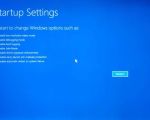How to Repair Your Computer: A Step-by-Step Guide to Fixing Common Issues
- 1- Why Computers Break Down
- 2- Basic Troubleshooting for Your Computer
- 3- Fixing Hardware Issues: Step-by-Step
- 4- Repairing Software Problems: Solutions
- 5- When to Seek Professional Help
- 6- Recommended Tools and Products for DIY Computer Repair
1. Why Computers Break Down
Computers can break down for many reasons, and understanding why they fail is the first step toward fixing them. Common causes of breakdowns include software conflicts, overheating, hardware failure, and malware infections. For instance, a frequent cause of computer slowdowns is dust buildup in the cooling system, which leads to overheating and system crashes.
Additionally, corrupted files or outdated software can cause system errors, leading to unexpected shutdowns or freezes. Identifying the cause of your computer's problems is crucial for effective troubleshooting and repair.
2. Basic Troubleshooting for Your Computer
Before jumping into complex repairs, it's important to perform basic troubleshooting steps. Start by rebooting your system. A simple restart can resolve minor issues like software glitches or slow performance. Also, check all connections – cables, external drives, and USB devices – to ensure nothing is loose or disconnected.
If your computer is running slowly, try clearing out unnecessary files or performing a disk cleanup. Running a virus scan is also a great way to rule out any potential malware that could be slowing down your system.
3. Fixing Hardware Issues: Step-by-Step
Hardware problems are often the most difficult to diagnose and fix, but with the right tools, you can often repair them yourself. One common issue is a malfunctioning hard drive, which can be replaced with a new one. To do this, you'll need to back up your data, remove the old hard drive, and install the new one.
Another common hardware issue is faulty RAM, which can cause your computer to freeze or crash unexpectedly. Replacing RAM is usually straightforward, but you should ensure that you buy compatible memory modules. If you're unsure, consult your computer's user manual or check online resources for detailed guides on replacing your hardware components.
4. Repairing Software Problems: Solutions
Software issues can be tricky, but there are several ways to resolve them. One of the first things to check is your operating system's updates. Sometimes, software problems arise from outdated system files that need to be updated. If you haven't updated your OS recently, go ahead and run an update to see if that resolves your problem.
If you're experiencing issues with a particular program, try reinstalling it or restoring the program to its default settings. For more severe software issues, consider performing a system restore to roll back your computer to a previous state before the problem occurred.
5. When to Seek Professional Help
Not every computer problem can be fixed on your own, and there are times when professional help is necessary. If you're dealing with a major hardware issue like a damaged motherboard or can't seem to solve a software problem despite troubleshooting, it may be time to contact a professional repair technician.
It's also worth seeking professional help if you're uncomfortable opening your computer or replacing parts. Taking apart a computer without the proper knowledge can lead to further damage, so it's better to let a technician handle it when in doubt.
6. Recommended Tools and Products for DIY Computer Repair
When repairing your computer, having the right tools is essential. A good set of screwdrivers, thermal paste, and anti-static wristbands are must-haves for any DIY computer repair enthusiast. You can find these tools in various online stores like Computer Repair, which offers a wide range of products for all your computer repair needs.
For software issues, there are plenty of diagnostic tools that can help you identify and fix problems. For example, tools like CCleaner can help clear out junk files and improve your computer’s performance, while Malwarebytes is excellent for removing malware infections.




























